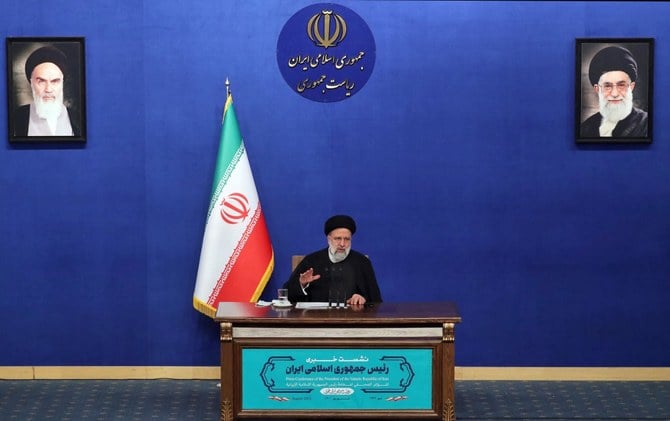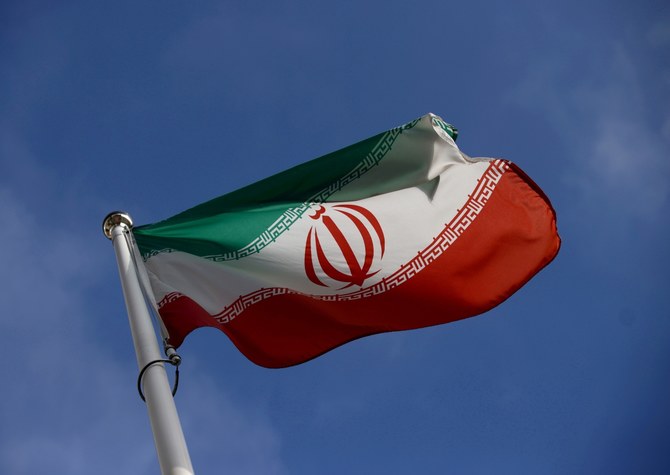
One of the most effective ways to alter the destructive behavior and policies of a rogue state is to impose powerful political and economic sanctions, forcing it to change its calculations and priorities in order to survive. In Iran’s case, the objectives behind the sanctions are to cut off the flow of funds to the regime and significantly impact its efforts to advance its nuclear program and fund and sponsor terrorist and militia groups across the region.
But if the sanctioned regime finds a path to circumvent the sanctions, not only will there be no change to its policies, but instead the rogue state will become more emboldened and empowered to continue with its destabilizing behavior.
One key question to ask is: Why, in 2015, did the Iranian regime rush to reach a nuclear deal but is now refusing to halt its nuclear program and revive the Joint Comprehensive Plan of Action? One of the most critical reasons lies in the fact that the sanctions in place before the 2015 nuclear deal worked effectively.
Prior to 2015, the sanctions against the theocratic establishment of Iran were extremely successful for several reasons. First of all, the US was capable of convincing Russia and China to join in with imposing pressure on Tehran. This led to a consensus among the five permanent members of the UN Security Council (the UK, France, Russia, China and the US) that allowed it to pass several resolutions sanctioning Iran. The first, UNSC Resolution 1696, which was passed in 2006, called on Iran to “suspend all enrichment-related and reprocessing activities, including research and development,” with the International Atomic Energy Agency tasked with reporting on its compliance.
The US sanctions have become far less effective as more countries ignore and violate them
Dr. Majid Rafizadeh
More importantly, all five permanent members of the UNSC also unanimously called on all countries to freeze the financial assets of Iranian entities linked to the nuclear program, as well as to sanction the supply or sale of nuclear-related equipment and technology. This led to Resolution 1803 of 2008, which imposed restrictions on Iranian bank transactions and called on countries to inspect Iranian ships and cargo planes where there were reasonable grounds to believe that the regime was smuggling prohibited products. For example, the regime has been repeatedly caught illegally smuggling weapons to its proxy in Yemen, the Houthis.
Unfortunately, Iran’s oil exports reached a new peak this month, in spite of the Biden administration’s sanctions. According to a report by Bloomberg: “While everyone looks at Russia, another oil-rich country under Western sanctions has quietly increased its production: Iran.” The story continued: “Iran’s oil exports are surging, offering solace to both Tehran and a global market fretting over the prospect of sanctions squeezing Russian supply. Much of it appears to be finding its way to China. The country’s oil exports surged to about 1.3 million barrels a day in November, and last month held near the highest in four years.”
Although the US sanctions under Donald Trump did have a negative impact on Iran’s economy for a while, they have become far less effective as more countries ignore and violate them — all while the Biden White House has not been taking any actions to deter, disincentivize or punish those who breach the sanctions.
In fact, ever since President Joe Biden assumed office two years ago, Iran’s oil exports have been on the rise. In 2018 and 2019, they were significantly reduced to 100,000 to 200,000 barrels a day. But Iran is currently exporting more than 1 million barrels a day, with about 800,000 barrels of this going to China.
Unfortunately, some of the US’ allies also appear to be freely trading with Tehran in spite of the American sanctions. “Iran and the European Union’s 27 member states traded €4.36 billion ($4.75 billion) worth of goods during the first 10 months of 2022, registering a 14.28 percent rise compared with last year’s corresponding period.” Mehr News Agency reported last month.
Mehr added that: “Germany was the top trading partner of Iran in the EU region during the period, as the two countries exchanged over €1.6 billion worth of goods, 15.44 percent more than in a similar period of the year before. Italy came next with €555.39 million worth of trade with Iran to register an 11.14 percent year-on-year rise … the Netherlands with €351.94 million (down 10.76 percent) and Spain with €296.06 million (up 13.12 percent) were Iran’s other major European trade partners.”
In a nutshell, as long as the sanctions against Tehran are not cutting the flow of funds to the regime, the theocratic establishment will have no incentive to change its behavior and will continue to defy international law and advance its nuclear program.
Dr. Majid Rafizadeh is a Harvard-educated Iranian-American political scientist. Twitter: @Dr_Rafizadeh
Disclaimer: Views expressed by writers in this section are their own and do not necessarily reflect Arab News" point of view












